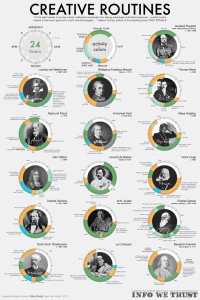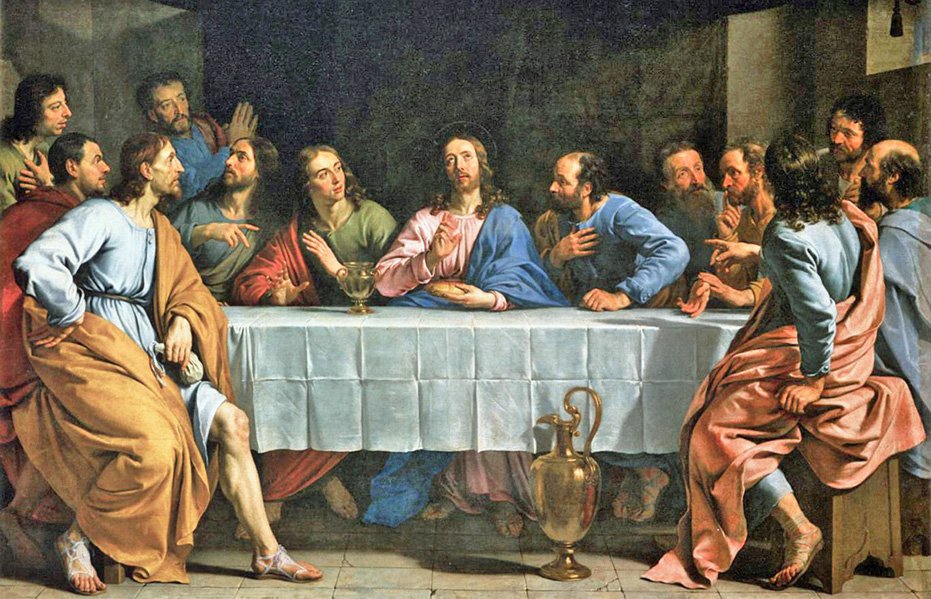 Three times in the last week or so, I have received a communication from someone which says ‘I know you are very busy…’ and these have stuck in my mind. One of these said ‘I am sure you are very busy—I know that I am.’
Three times in the last week or so, I have received a communication from someone which says ‘I know you are very busy…’ and these have stuck in my mind. One of these said ‘I am sure you are very busy—I know that I am.’
A couple of things struck me immediately. The first, and most urgent, was: What have I said or done that has provoked this comment? Am I looking tired, or hassled? Have I failed to give people my attention? Have I not replied to messages? What is it that makes me look ‘busy’? If I am giving off signs that I am busy, that suggests that I broadcasting a signal ‘I don’t have time for you’—and that is worrying.
Christianity Today are currently republishing their best 40 articles from the last 36 years of their existence, and they have just reposted the 1981 article by Eugene Peterson ‘The Unbusy Pastor’.
The one piece of mail certain to go unread into my wastebasket is the one addressed “to the busy pastor.” Not that the phrase doesn’t describe me at times, but I refuse to give my attention to someone who encourages what is worst in me. I’m not arguing the accuracy of the adjective; I am, though, contesting the way in which it is used to flatter and express sympathy.
So my second question is, how do I reply to this comment? In our culture, are we allowed to say ‘Actually, I am not very busy’? I practised saying this in my head, and it sounded odd. What kind of people say ‘I’m not busy’? When my late mother retired, one of her comments was ‘I don’t know how I ever found the time to work!’ Even in retirement, she was busy. We appear to have created a culture where the only people who are not ‘busy’ are people who are, well, a bit sad. Busyness has become the mark of a full and satisfied life. But is it really so?
So what do we mean when we say ‘I am very busy’? It might actually mean ‘I am in a role which demands more of me than I want to give.’ This might be the case for those in ‘secular’ employment or with responsibilities for family members. We might genuinely be in a situation which, through little choice of our own, makes unsustainable demands of us. Economic pressures have recently robbed us of an hour’s sleep; we sleep too little on average; and the hyper connectivity of digital devices makes it worse. Clergy need to take this reality seriously. They are in the incredibly privileged position of having more control over their own time than most in their congregations; woe betide the vicar who takes the morning off and then complains when commuters who were up at 6 am don’t attend an evening meeting!
Peterson takes a more ruthless approach to the possible reasons behind this phrase:
I (and most pastors, I believe) become busy for two reasons; both reasons are ignoble. I am busy because I am vain. I want to appear important. Significant. What better way than to be busy? The incredible hours, the crowded schedule, and the heavy demands on my time are proof to myself-and to all who will notice-that I am important…
The other reason I become busy is that I am lazy. I indolently let other people decide what I will do instead of resolutely deciding myself. I let people who do not understand the work of the pastor write the agenda for my day’s work because I am too slipshod to write it myself. But these people don’t know what a pastor is supposed to do.
I believe that the phrase ‘I’m very busy’ is sometimes a cry from the heart—I feel oppressed by the burden of the things I am supposed to do—either from a sense of guilt, or need, or the agendas others impose on me.
 One of my favourite books on time management is Do It Tomorrow by Mark Forster, who also wrote Get Everything Done and Still Have Time to Play. Mark refreshingly blows away a lot of nonsense about time management—including the idea that you can ever ‘manage’ time. The issues about busyness we face are not issues of time management, but issues of self management—how we perceive things and how we organise our lives. Romans 7 is actually highly relevant to our ‘time management’ issues!
One of my favourite books on time management is Do It Tomorrow by Mark Forster, who also wrote Get Everything Done and Still Have Time to Play. Mark refreshingly blows away a lot of nonsense about time management—including the idea that you can ever ‘manage’ time. The issues about busyness we face are not issues of time management, but issues of self management—how we perceive things and how we organise our lives. Romans 7 is actually highly relevant to our ‘time management’ issues!
But Forster also highlights early on a key reality: if we are ‘busy’ then it might simply be that we are over-committed. How much work can you do in an hour? Answer: an hour’s worth. But if you are committed to 2 hours’ work in an hour, no amount of ‘time management’ is going to solve that. You actually need to cut down on your commitments. That is more easily said than done, but it still raises a challenge for me. Do I take on too much? Am I too quick to say ‘yes’ to things? Even if a large part of the commitments we have is not under our control, there are always parts which are.
Saying ‘I am very busy’ can express a different kind of frustration too. It might not simply be the amount of work we have, but the way it comes to us. Constant demands and a steady stream of interruptions can frustrate our sense that we are achieving anything. (Ask my wife!) Mark Forster again puts his finger on this: what we need is ‘sufficient focussed attention’ on the things that are important. And that means setting aside some of the immediate demands. Do emails need to be answered on the day they are received? Can I talk to that person tomorrow, rather than right now? Does that meeting need to be this week, rather than next? This is where we need to use careful judgement; putting people off can communicate the ‘I am very busy’ line. But surely better to say ‘I’m not too busy; let’s chat tomorrow’ than ‘Yes, I can talk now…but I have a lot to do!’
But there is also a third possibility: we make ourselves busy because that is the way we gain a sense of significance. If we were not busy, there might be the gnawing sense that we are not, after all, totally and absolutely indispensable to the projects we are involved in and the people we are in contact with. And that is deeply threatening unless we have a well-rooted sense of identity and confidence in who we are.
God gives us two gifts which can serve as a defence against these feelings. The first is the gift of Sabbath. The command to rest (not just me, but all my household) is at once an invitation to trust in God for his provision (the crops will still grow, the emails will wait another day) as well as a bulwark against the presumption that the universe will not run unless I do my bit to keep it going. In fact, Sabbath rest can often be a key to fruitfulness. Last week I saw an interesting ‘infographic’ which suggested that the world’s greatest creative geniuses had only achieved what they had because they took rest seriously.
The second is the gift of calling. If we are involved in the things we are because God has called us to them, is our level of busyness a reflection of that call? Is God calling us to be busy? In one sense, yes. We are to ‘redeem the time’ (Eph 5.16). But I am not sure that this is always the source of my busyness.
Peterson believes it is vital to address this question if we are to do what God has called to. For this in full-time Christian ministry, this has significant consequences.
I want to be a pastor who prays. I want to cultivate and deepen my relationship with God. I want all life to be intimate–sometimes consciously, sometimes unconsciously–with the God who made, directs, and loves me…
I want to be a pastor who preaches. I want to speak the word of God that is Scripture in the language and rhythms of the people I live with. I want to know the Scriptures thoroughly, personally, intimately; and then be able to say them again to the people around me…
I want to be a pastor who listens. A lot of people approach me through the week to tell me what is going on in their lives. I want to have the energy and time to really listen to them so when they are through, they know at least one other person has some inkling of what they’re feeling and thinking.
So: are you busy? What is the reason for your busyness? Is it poor use of time? Or circumstances beyond your control? Do you need to give more ‘sufficient focussed attention’ to some of the things you are doing? In the end, is your activity borne out of your sense of God’s call on your life? Are you free to say to someone ‘I’m not busy’?
(Much of this piece was first written two years ago. I think it is still relevant.)
Follow me on Twitter @psephizo
Much of my work is done on a freelance basis. If you have valued this post, would you consider donating £1.20 a month to support the production of this blog?





























Hmm some really good points Ian, for me I often feel overwhelmed because I don’t know how long a task will take, but still can’t put people off for ever. For instance I am terribly slow at Sermon preparation and have always been. So when I look at a week and see the need to talk to people and also fit in sermon prep time and whatever else is going on, I find I struggle to know how much time to give to either.
Perhaps I am overly prepared, but I don’t work well when under a lot of pressure, I’m a plodder. So I often start a sermon weeks before cultivating bits to help me as I get nearer to the actual time to bring it all together. But managing my time has always been a struggle. But not because of the reasons you mentioned above.
The vicar here spent about 18 years trying to convince people not to use the word ‘busy’ about him, but I think has basically given up. It turns out that if you are, in fact, busy – people will notice!
I read ‘Crazy Busy’ by Kevin DeYoung last year and found that quite helpful. One of the points he makes which I actually found most helpful is that ministry is supposed to be busy! – having a lot on is simply a characteristic of life for most people in full-time Christian work (‘the fields are ripe for harvest, but the labourers are few…’). I think it’s a very difficult line to walk actually, trying to balance all the things we have to do on the one hand with not overdoing it! Peter Brain wrote a book called ‘Going the Distance’ – one of the big problems in ministry is burnout, and some of the statistics are scary.
Still, the apostle Paul’s life was hardly a bed of roses e.g. 2 Cor 4:8-12!
Thanks Ian – a very timely piece with Lent approaching. Perhaps some of us in ministry could fast from using the word ‘busy’ about ourselves, and also actually become less busy by focusing more on the priorities that Peterson suggests. It would be nice too if others stopped colluding with our sense of self-importance by fasting from describing us as ‘busy’, but that seems to be too much to ask, the perception being extremely ingrained in church culture, if not in the way the rest of the world sees us.
I don’t think clergy are busy. I think they confuse fear with busy ness.
This is a chronic question – just goes round and round, generation after generation. My father was too busy. I have been. My children are. I believe the same as you, that often people say I’m too busy because they need the security of feeling more significant or important. Sometimes, they really are – and they don’t have a choice about where or how to apportion their time (one of my daughters is permanently too busy because she’s a full-time surgeon in the NHS which is constantly cutting back).
We do need a good hard long look at ourselves sometimes, preferably in the company of someone who is going to be truthful with us, or at least, mediate God’s truth to us!
another fantastic blog ian’ i in fact feel insignificant and not valued because i am not “busy”!xxx
Great blog on a really practical issue. Like this quote ‘I (and most pastors, I believe) become busy for two reasons; both reasons are ignoble. I am busy because I am vain. I want to appear important. Significant. What better way than to be busy? The incredible hours, the crowded schedule, and the heavy demands on my time are proof to myself-and to all who will notice-that I am important…
The other reason I become busy is that I am lazy. I indolently let other people decide what I will do instead of resolutely deciding myself. I let people who do not understand the work of the pastor write the agenda for my day’s work because I am too slipshod to write it myself. But these people don’t know what a pastor is supposed to do.’ Petersen
Another reason why people might approach with a ‘I know you’re very busy…..’ is that they don’t feel sure enough of the relationship to be able to ask for some attention, and it seems a polite way to ask. It is a message that says ‘I don’t expect you to answer this, or to give me the time, but it would be great if you did.’ So it might be nothing to do with you giving out signals of being too busy, or stressed, but of others not feeling sure where they are with you.
I believe most of us struggle with feeling we are an imposition on others. As you say, in this hectic era being busy all the time is considered normal. For many years I also tended to feel God is too busy to be interested in my trivial concerns. “Can’t you see I’m dealing with a famine here…get back in touch when you have a serious illness and we’ll talk.” I don’t know why I had this idea. I’m glad I don’t feel like this anymore. I hope others who do feel this way will grow in the knowledge of their Saviour, that he always has time for us, even if we don’t have a serious matter that needs urgent attention!